Heating the house with gas cylinders: features of
Heating with gas cylinders is one of the autonomous methods for the implementation of a heating system, which is an alternative to the use of solid fuel materials. It is widely used in suburban areas and in villages that do not have a central heating system.
In this article we will consider the basic conditions for the operation of liquefied gas.
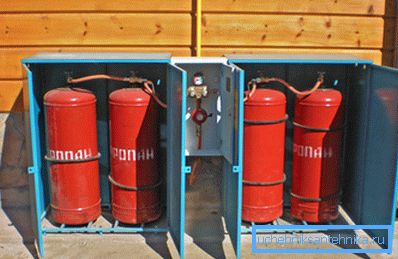
General provisions
Heating a country house with gas cylinders has several advantages:
Merits
- High efficiency.
- Multifunctionality. Gas can provide you with not only warm batteries, but also heated water and a working stove.
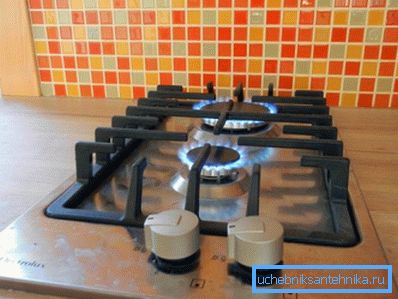
- Compactness. Cylinders with liquefied propane take up much less space and are easier to transport than, for example, the amount of firewood that is similar in energy intensity.
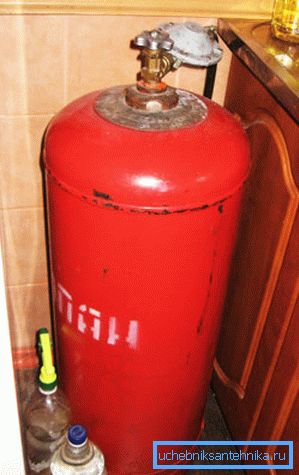
- Simple instruction manual. The only significant difference from using a common gas main is the periodic replacement of carriers.
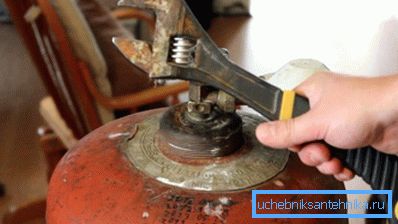
- The possibility of switching to a common gas pipeline. In this case, the boilers in both cases are used almost the same, which makes it possible to switch from one system to another.
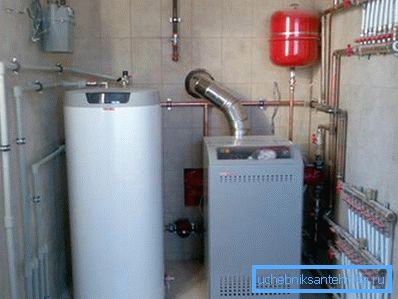
disadvantages
There is nothing perfect, and in this case, before installing the heating on gas cylinders, first read about a couple of its negative sides, the influence of which, in general, can be minimized:
- Relatively high price. Propane itself is not a cheap product, and if in the case of heating a small area you do not feel excessive costs due to the high efficiency of its use, then if you need to heat spacious cottages, firewood and coal can provide great savings.
- Explosion hazard It is necessary to strictly observe the rules for storing containers with such dangerous contents, which we will consider next.
Storage rules
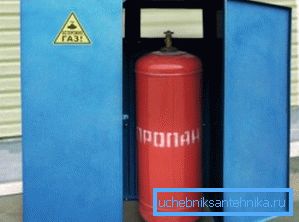
- When finding containers with propane in the open air, be sure to take care to protect them from direct sunlight and precipitation.
- Only those samples that have passed a special control test are allowed to be connected to the system.
- Containers with mechanical damage or rust are not allowed to operate.
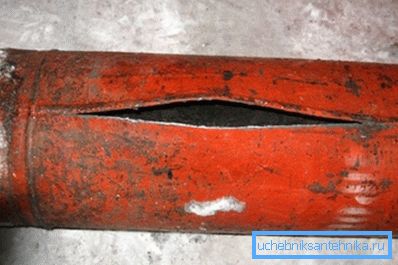
- The residual pressure parameter should not exceed 0.05 MPa.
- Temperature indicators in the storage area of containers should be less than +45 0WITH.
- The distance to the stove must be kept at least 50 cm, to the heating pipes at least 100 cm.
Installation and operation
If all of the above is completely suitable for your site, then proceed to how the heating with bottled gas.
Necessary equipment
The heating of the dacha with gas cylinders is performed using the following devices:
| Name | Purpose |
| A gas boiler | Converts gas to heat |
| LPG burner | Allows the boiler to use the contents of the cylinders as fuel |
| Gas cylinders | Actually the carriers themselves |
| Gearbox | Connects propane carriers to the boiler |
| Gas pipeline | Combines all the listed equipment into a single heating system |
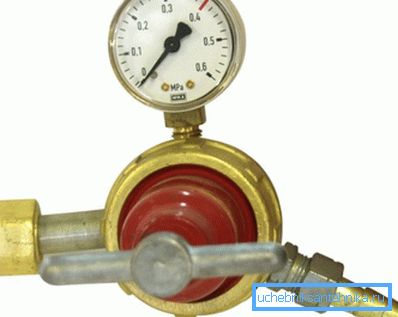
Tip: it is recommended to install a boiler with low operating pressure. This will make it possible to maximize the use of propane in the tanks.
Installation Features
Heating a house from a gas cylinder when arranging has several important points:
- Connection of one or several gas cylinders to the heating device is carried out with the help of a special reducer designed for consumption from 1.8 to 2 m3/hour. It is noteworthy that conventional gearboxes with a flow rate of 0.8 m3/ hour, intended for work with the general highway are not suitable for application of the liquefied gas.
Tip: it is desirable to use simultaneously from 3 to 10 cylinders. This option will significantly increase the time of the system between the replacement of gas carriers.
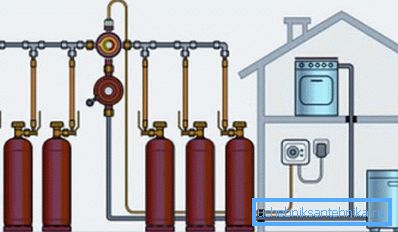
- There are two ways to connect multiple cylinders:
- With one common gearbox.
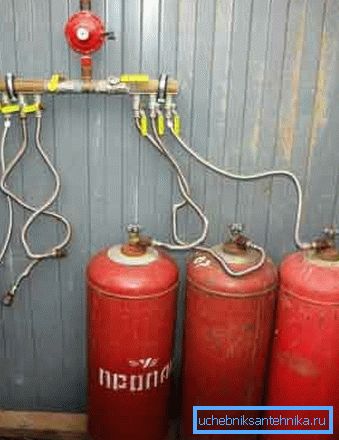
- With many individually mounted gearboxes.
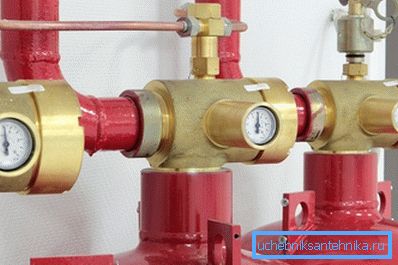
Tip: It is recommended to use the second option, which is more expensive though, but much safer.
- The room for placement of gas cylinders should:
- To be warmed, since at low temperature the pressure of the liquefied energy carrier may decrease so much that the flame created by it will completely extinguish.
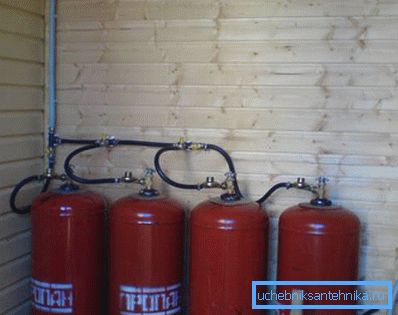
- Do not have pits and subfloors that can accumulate propane in case of leakage.
- Stay too close to living rooms.
- Have effective ventilation.
- Burner connection must be made using a corrugated iron liner. Thus, it is possible to avoid vibrations emanating from the pipe connecting the gas carriers.
Calculate the amount of gas consumed
Heating with bottled gas uses a certain amount of propane according to the area of the heated building, which can be predicted, given some data:
| Indicator | Value |
| The required amount of gas to create 10 kW of thermal energy, which is equivalent to heating a house with an area of 100 m2 | 1.2 kg / h |
| The tendency to reduce the consumption of propane due to building insulation and optimization of the boiler operation | 3-4 times |
| Capacity of one cylinder | 40 l or 22 kg |
Based on the above data, gas-cylinder heating of a house with an area of 100 m2 will require 8-9 carriers per month. At the cost of filling 500 p. Your monthly expenses will be 4000-4500 r.
Conclusion
Heating a house on gas bottles is beneficial under certain conditions. But this process must be approached with all responsibility, as there are risks, as well as financial losses, and the occurrence of emergency situations. Above, we set out all the necessary recommendations so that you can use gas cylinders as effectively and safely as possible.
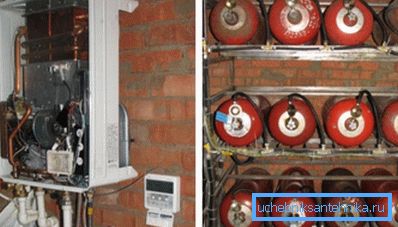
The video provided additional material. Successful to you arrangement of autonomous heating!